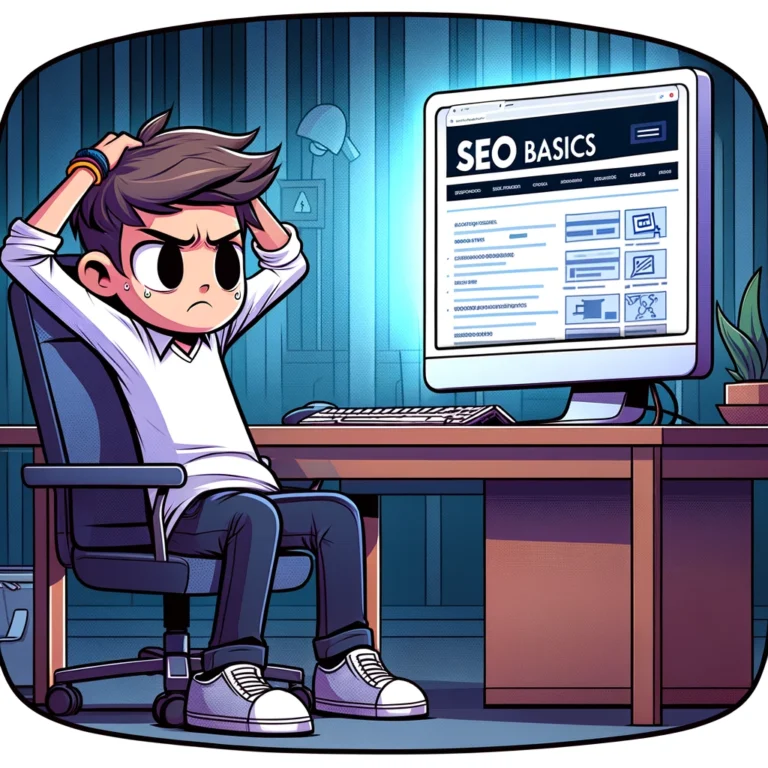Search Engine Optimization (SEO) is not just a buzzword in the world of digital marketing; it’s a fundamental component that can make or break your online presence. In this comprehensive guide, we’ll delve into the essentials of DIY SEO and how it intertwines with your overall digital marketing strategy to drive success.
What is SEO?
SEO is the art and science of optimizing your website to rank higher in search engine results. This involves tweaking various elements of your site to make it more attractive to search engines like Google, Bing, and Yahoo. The ultimate goal is to increase visibility, which in turn drives more organic traffic to your site.
The Pillars of SEO
To understand how to leverage SEO effectively, you must first grasp its core pillars: on-page SEO, off-page SEO, and technical SEO.
- On-Page SEO: This involves optimizing the content on your website. It includes using relevant keywords, creating quality content, and ensuring that your titles, headers, and meta descriptions are well-crafted. Each page should provide value to your audience and answer their questions.
- Off-Page SEO: This aspect of SEO focuses on external factors such as building backlinks from other reputable websites. Backlinks are crucial because they signal to search engines that other sources find your content valuable and trustworthy.
- Technical SEO: This includes the backend elements of your website like site speed, mobile-friendliness, indexing, and crawlability. Ensuring these elements are optimized is crucial for both search engines and user experience.
SEO and Digital Marketing: The Dynamic Duo
Integrating SEO with your digital marketing strategy can amplify your reach and effectiveness. Here’s how SEO plays a pivotal role:
- Enhanced User Experience: SEO isn’t just about pleasing search engines. It’s also about optimizing the user experience. A well-optimized site loads faster, is easier to navigate, and provides valuable content in a user-friendly format.
- Brand Visibility and Awareness: By ranking higher in search results, you naturally increase your brand’s visibility. This is vital in a crowded market where standing out from the competition is crucial.
- Cost-Effectiveness: Compared to paid advertising, SEO requires less financial investment in the long run. While it takes time and effort, the organic traffic generated from a well-optimized site provides a more stable and consistent return on investment.
- Sustainable Growth: SEO helps you build a foundation for continuous growth. By consistently applying SEO best practices, you can maintain and improve your rankings, which helps you attract more traffic over time.
DIY SEO Strategies That Work
Implementing effective SEO strategies doesn’t require a huge budget. Here are some DIY tips to get you started:
- Keyword Research: Use tools like Google Keyword Planner or SEMrush to find relevant keywords. Look for terms your audience is searching for, but also pay attention to search volume and competition.
- Quality Content Creation: Produce content that addresses the needs and questions of your audience. Whether it’s blog posts, videos, or infographics, make sure it’s informative and engaging.
- Optimize Meta Tags and Descriptions: These elements help search engines understand the content of your pages. Ensure they include keywords and are enticing enough to encourage clicks from search results.
- Mobile Optimization: With the increasing dominance of mobile browsing, ensure your site is mobile-friendly. This not only affects user experience but also impacts your search engine rankings.
- Regular Updates and Maintenance: SEO is not a set-and-forget strategy. Regular updates to your content, as well as ongoing maintenance of your site’s technical health, are essential to stay relevant and competitive.
SEO is an integral part of digital marketing that extends beyond just getting to the top of search engine results. It’s about creating a website that communicates effectively with search engines and provides a great experience for users. By incorporating sound SEO practices into your digital marketing strategy, you can enhance your visibility, improve user engagement, and achieve sustainable growth. Remember, SEO is a continuous process that requires patience, persistence, and adaptability. Start with these DIY SEO basics, and you will be well on your way to digital marketing success.

Leveraging SEO for Competitive Advantage
Understanding and implementing SEO effectively can give you a significant edge over competitors. Here’s how you can further integrate SEO into your digital marketing for better results:
- Local SEO: If you have a physical location or serve a specific geographic area, local SEO can be incredibly powerful. Optimize your website for local search terms, claim your Google My Business listing, and ensure your name, address, and phone number (NAP) are consistent across all platforms.
- Social Media Integration: While social media signals don’t directly influence rankings, they can affect your SEO indirectly. Share your content on social media to drive more traffic to your site. This increased engagement can signal to search engines that your content is valuable, which might improve your rankings.
- Analyzing Competitors: Keep an eye on what your competitors are doing. Tools like Ahrefs or Moz can help you understand where they’re getting their backlinks from and what keywords they’re targeting. This insight allows you to refine your strategy and identify new opportunities.
- Regular SEO Audits: Conduct regular SEO audits to identify and fix any issues. This includes checking for broken links, ensuring your website is indexed properly, and analyzing your website’s structure. Regular audits help you optimize your site continually and maintain high rankings.
Practical SEO Tips for Immediate Implementation
To put your knowledge into practice, here are some actionable SEO tips you can implement right away:
- Improve Site Speed: Use tools like Google PageSpeed Insights to analyze and improve your website’s loading speed. Faster sites not only provide a better user experience but are also favored by search engines.
- Structured Data Markup: Implement structured data (Schema markup) to help search engines understand your site content better. This can also enable rich snippets in search results, which can improve click-through rates.
- Link Building: Focus on acquiring high-quality backlinks. You can start by creating compelling content that naturally attracts links, participating in relevant forums or blogs, and guest posting on reputable sites in your niche.
- Content Updates and Refreshes: Update older content to keep it relevant. This not only provides a better user experience but can also give older pages a boost in search rankings if updated with current information and keywords.
Measuring SEO Success
To measure the effectiveness of your SEO efforts, track the following key metrics:
- Traffic: Use tools like Google Analytics to monitor organic traffic. Look for trends and patterns that indicate what’s working and what’s not.
- Rankings: While individual rankings can fluctuate, it’s important to track how your website performs for key terms over time. Tools like Google Search Console can help you understand your site’s performance in search results.
- Conversions: Ultimately, the goal of SEO is to contribute to your business objectives. Set up tracking for conversions, whether they are sales, sign-ups, or other actions, to see the direct impact of your SEO efforts.
Conclusion
As digital landscapes evolve, the integration of SEO into your marketing strategy is more crucial than ever. It’s about building a robust online presence that attracts and retains customers. By understanding the basics and implementing these practical tips, you can effectively use SEO to drive meaningful results. Remember, SEO is a long-term strategy that requires ongoing effort and adaptation to changing search algorithms and market conditions. Stay committed, stay informed, and watch your digital marketing strategy thrive through powerful SEO practices.
References
- Google Keyword Planner: https://ads.google.com/home/tools/keyword-planner/
- SEMrush: https://www.semrush.com/



